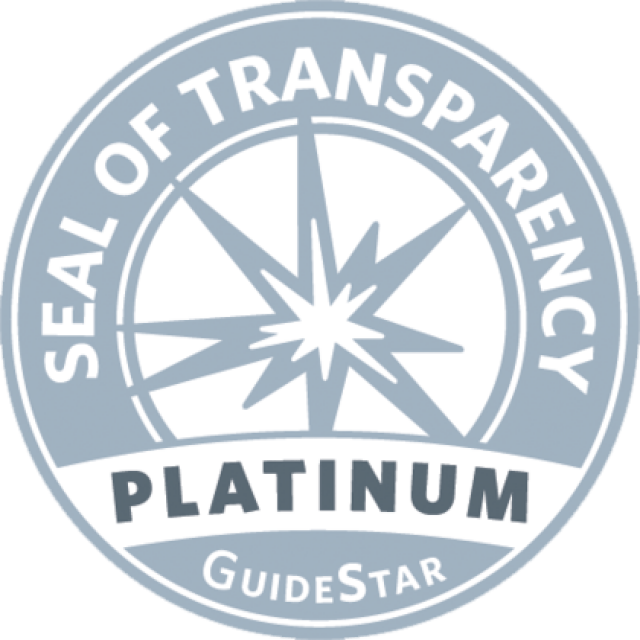
16 Steps to Building a Conscious, Sustainable Business
The concept of establishing an ethical and conscious business aligns seamlessly with the spirit of the age — a time where humanity is increasingly aware of the interconnectedness of all things and the impact of our choices on the environment, society, and individual well-being. Starting a conscious, ethical business involves careful planning anda strong commitment to social and environmental responsibility.
Here's a step-by-step guide to help you get started.
Step 1: Self-Assessment and Clarity
Before anything else, sit down and evaluate your own values, goals, and motivations for wanting to start a business. Having a clear understanding of your 'why' will guide you through the challenges that inevitably arise when starting a business. And aligning your business with your values will help you to sustain it through the good and bad times.
Step 2: Research and Identification
Conduct market research to identify a need or issue that your business can ethically and consciously address. No matter how noble your intentions, a business has to solve a problem or meet a need to be viable. This will also help you understand the landscape, competition, and potential challenges. Conduct thorough research to understand your target market and industry trends. Identify gaps or opportunities where your ethical business can make a positive impact.
Step 3: Business Model Canvas
Create a business model canvas that aligns with ethical principles and a conscious approach to entrepreneurship. This will be your roadmap, linking your vision with practical aspects like customer segments, revenue streams, and partnerships.
Step 4: Ethical and Conscious Business Plan
Write a comprehensive business plan incorporating not just financial projections but also social and environmental impact metrics. Create a business plan that emphasizes how your business will impact the planet and people. Articulate your business purpose in alignment with these values. And capture how you intend to profit. Account for these factors and you will attract the right kind of investors, partners, and customers.
Create a clear description of how your ethical values will be integrated into every aspect of your business operations.
Step 5: Legal Formalities and Structure
Decide on a structure such as sole proprietorship, partnership, limited liability company (LLC), or corporation. Consult with legal and financial professionals to determine the best option for your situation. Consider registering your business as a B Corporation or a Social Enterprise. This legal structure will formalize your commitment to both profit and social/environmental impact.
Step 6: Conscious Team Building
When hiring, look beyond qualifications to consider the values and consciousness-level of potential team members. A team that shares your values will work cohesively towards the common goal of a conscious, ethical business.
Conscious business is a concept that is gaining popularity among company leaders and employees who want to make a difference in the world. A conscious business stands at the forefront of its competition, embodying an approach that transcends profit-making. It integrates values like sustainability, community welfare, and ethical practices into its core functioning, and by doing so, these businesses not only enrich themselves but also play a pivotal role in shaping a better future for humanity. Here, we present six transformative tips for entrepreneurs aspiring to create moreconscious businesses.
1. Cultivate a Purpose-Driven Mission
Traditional Business: Profit-centric Approach
Traditionally, businesses focus predominantly on maximizing shareholder value and profits. This approach often overlooks broader societal and environmental impacts.
Conscious Business: Purpose Beyond Profit
In contrast, a conscious business is anchored in a mission that serves the greater good. This could involve addressing social issues, championing sustainability, or uplifting communities. For instance, Patagonia's commitment to environmental conservation sets a stellar example. They not only create sustainable outdoor clothing but also actively engage in environmental activism.
Action Tip:
Define your business's purpose that aligns with a broader societal or environmental goal. Ensure this purpose is reflected in every aspect of your business, from product development to marketing strategies.
2. Embrace Transparency and Integrity
Traditional Business: Closed-Door Policies
Conventional businesses often operate with a degree of opacity, especially regarding internal processes and decision-making.
Conscious Business: Open and Honest Practices
Conscious businesses prioritize transparency and integrity. They are open about their practices, supply chains, and business decisions. For example, Buffer, a social media management tool, openly shares information about its pricing, revenue, and even employee salaries.
Action Tip:
Adopt transparent practices. Regularly communicate with your stakeholders about your business processes, challenges, and successes.
3. Foster an Inclusive and Empowering Work Culture
Traditional Business: Hierarchical and Exclusive
Traditional work environments tend to be hierarchical, often limiting employee engagement and creativity.
Conscious Business: Collaborative and Inclusive
Conscious businesses create inclusive work cultures that value every employee's contribution. Salesforce, a leader in cloud-based software, is known for its inclusive culture and equal pay initiatives.
Action Tip:
Develop a work environment that encourages collaboration, creativity, and equality. Implement policies that support diversity, equity, and inclusion.
4. Implement Sustainable Practices
Traditional Business: Short-term Environmental Impact
Many traditional businesses focus on short-term gains, sometimes at the expense of long-term environmental sustainability.
Conscious Business: Long-term Environmental Stewardship
Conscious businesses adopt sustainable practices. IKEA, for example, invests in renewable energy and aims to become "climate positive" by 2030.
Action Tip:
Incorporate sustainable practices in your operations. This could involve using renewable energy sources, reducing waste, or sourcing materials ethically.
5. Engage in Community Well-being
Traditional Business: Limited Community Interaction
Traditional businesses often lack engagement with the communities they operate in beyond fulfilling basic economic roles.
Conscious Business: Active Community Participation
Conscious businesses actively contribute to community welfare. This is exemplified by companies like TOMS, which donates a pair of shoes for every pair sold.
Action Tip:
Actively engage with and contribute to your community. This could be through philanthropy, volunteering, or community-oriented projects.
6. Practice Conscious Leadership
Traditional Business: Top-Down Leadership
In many traditional businesses, leadership often follows a top-down approach, with decisions made by a few at the top.
Conscious Business: Conscious and Collaborative Leadership
Conscious businesses practice a leadership style that is empathetic, collaborative, and mindful. Leaders in such organizations are not just decision-makers but also facilitators and mentors.
Action Tip:
Adopt a leadership style that is participatory, empathetic, and self-aware. Encourage open dialogue and foster a culture of continuous learning and development.
The decision to create a conscious business is not just a strategic choice but a moral imperative in our quest for a sustainable and equitable world. By adopting these six tips, entrepreneurs can lead the charge toward a future where business is an active participant in shaping a better world for everyone. Together, as we reach the tipping point of conscious living and business practices, we can manifest a world that thrives on unity, sustainability, and shared prosperity.
Step 7: Ethical Supply Chain
Scrutinize your supply chain to ensure that it adheres to ethical and sustainable practices. Conscious living extends beyond your immediate environment. Your business's impact will be judged by the company it keeps.
Select suppliers, manufacturers, and partners that share your ethical values. Ensure they adhere to responsible and sustainable practices, whether it's in sourcing materials, production, or labor.
Establish transparent and sustainable supply chain practices. Consider factors such as responsible sourcing, minimizing waste, reducing carbon footprint, and ensuring fair wages and safe working conditions for your employees and suppliers.
Step 8: Product or Service Development:
Create products or services that reflect your ethical principles. Consider factors such as eco-friendly materials, fair labor practices, cruelty-free ingredients, and innovative solutions that contribute positively to your chosen cause.
Step 9: Mindful Marketing and Building a Strong Brand
Develop a marketing strategy that truthfully communicates the value and ethics of your products or services. Authenticity is crucial in attracting a conscious consumer base. Remember, ethical storytelling is your ally.
Develop a brand identity that communicates your ethical values and resonates with your target audience. Your branding, messaging, and marketing materials should consistently reflect your commitment to ethics.
Step 10: Secure Funding
Determine how you'll fund your ethical business. This could involve personal savings, investments from family and friends, bank loans, venture capital, crowdfunding, or grants from organizations that support ethical initiatives.
Step 11: Legal and Regulatory Compliance
Ensure that your business complies with all relevant laws, regulations, and industry standards. This includes obtaining any necessary licenses or permits, registering your business, and following tax requirements. Perform your research early to avoid penalties or unforeseen taxes.
Step 12: Implement Ethical Practices Internally
Apply ethical principles within your organization as well. Write a strong mission statement and prominently feature it on your website. Foster a positive and inclusive work culture that brings this mission statement to life by prioritizing employee well-being and implementing practices that align with it.
Step 13: Engage in Philanthropy and Giving Back
Dedicate a portion of your profits or resources to philanthropic initiatives related to your cause. This could involve donating to charities, supporting local community projects, or launching your own social impact programs.
Step 14: Launch and Promote
Launch your ethical business and promote it through various marketing channels, including social media, your website, and collaborations with other like-minded businesses or influencers.
Step 15: Operations and Metrics
Implement operations that reduce waste, boost employee well-being, and measure success with both financial and ethical metrics. Operations grounded in ethical principles create a sustainable business in the truest sense.
Step 16: Ongoing Reassessment
Regularly revisit your business plan, employee welfare, and impact metrics to ensure alignment with your initial vision. Evolution is natural; ensure that as your business grows, it continues to adhere to the principles it was founded upon.
Continuously assess and measure the social and environmental impact of your business. Report your progress transparently to your stakeholders, demonstrating your commitment to your ethical mission.
An Ongoing Journey
Remember, building an ethical business is an ongoing journey. Stay adaptable, open to feedback, and dedicated to your cause, and your business can become a positive force for change in your industry and beyond. When it’s rooted in conscious living, building your business becomes a purposeful adventure that adds value to the lives of others, the planet, and also feeds the soul. As more and more people choose this path, we come ever closer to that tipping point where conscious living becomes the norm rather than the exception, fostering a more harmonious world for all. So, let's bring this vision into reality and generate momentum towards manifesting a flourishing world for everyone. Together, we can make it happen!
Share this post!
LATEST BLOGS




FREE PROGRAMS
LISTEN TO ONE OF OUR RECENT PODCASTS
Sign up now so you never miss a blog post, podcast,
or free event with Humanity's Team!





















